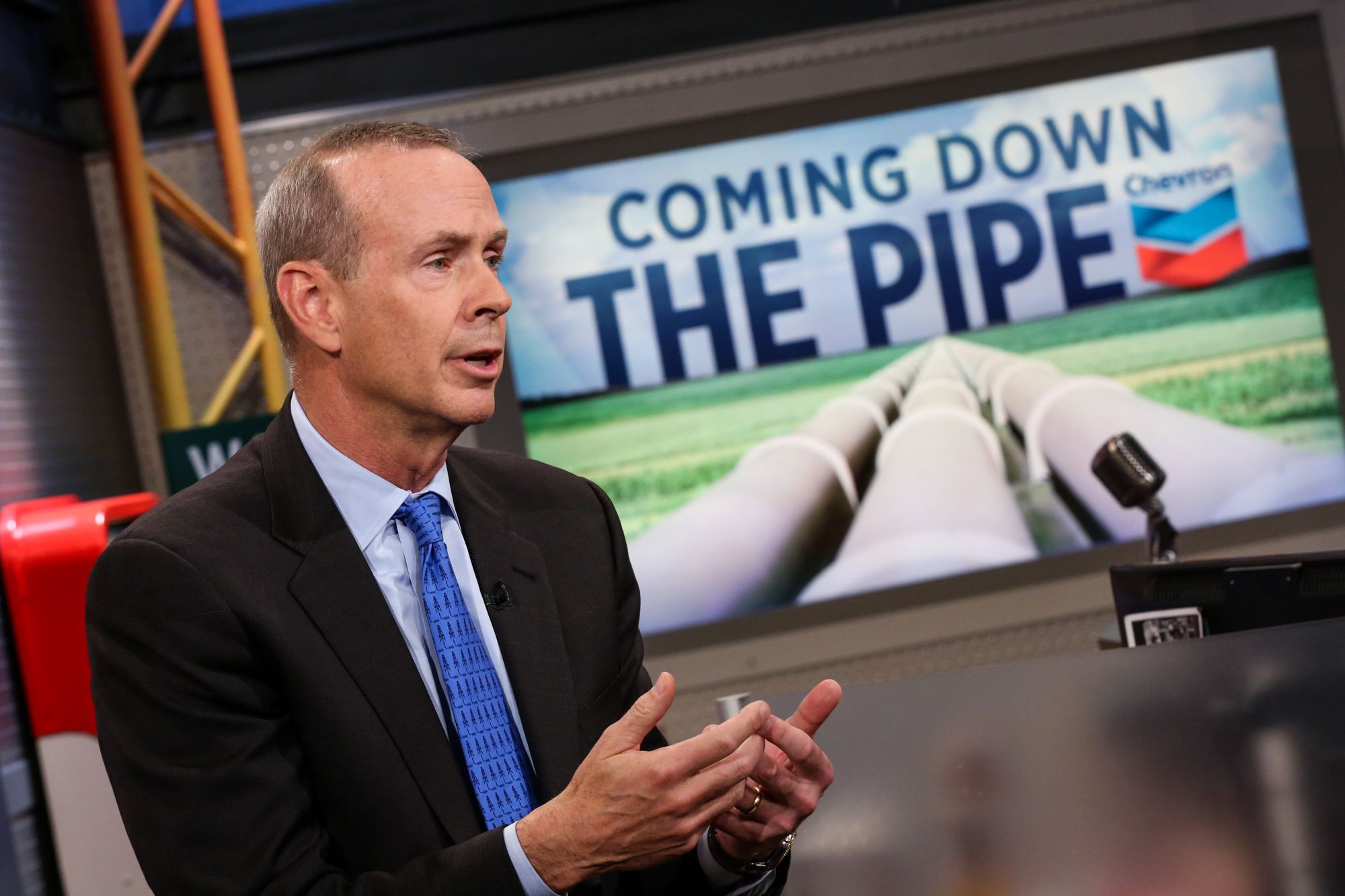What Chevron loses if Occidental wins bidding war for Anadarko

[ad_1]
Michael Wirth, CEO of Chevron.
Adam Jeffery | CNBC
Chevron‘s leaders insist the company’s fortunes don’t rely on dealmaking, but the oil major nevertheless has much to lose if it does not prevail in an ongoing battle with Occidental Petroleum to take control of Anadarko Petroleum.
Since Occidental first revealed its challenge to Chevron’s $33 billion agreement to buy Anadarko, analysts have largely seen Chevron as the likely victor. The prize includes acreage in the hottest U.S. shale oil field, new offshore opportunities and a major natural gas export project in Africa.
While Occidental put in a higher bid, Anadarko’s global operations better dovetail with Chevron’s international portfolio. And with a far larger balance sheet than Occidental boasts, Chevron can more easily digest an acquisition of this size.
But despite those advantages, the momentum appears to have swung in Occidental’s favor following series of unexpected developments.
First, Warren Buffett‘s Berkshire Hathaway committed to invest $10 billion in Occidental to fund the Anadarko purchase. Then Occidental reached a deal to sell Anadarko’s operations in Africa to French oil major Total for $8.8 billion. Bolstered by those two deals, Occidental sweetened its bid by offering to pay mostly in cash.
On Monday, sources told CNBC’s David Faber that Anadarko is likely to determine by end of day that Occidental’s offer is superior. If that happens Chevron will have four days to counter with another bid.
“With growing certainty that Oxy can deliver on its bid and an Oxy shareholder vote now off the table, Chevron’s ability to win out by incrementally raising their offer looks gone. Likely Chevron would need to match or beat Oxy’s $76/share offer to carry the day at this point,” said Andrew Dittmar, and M&A analyst at Drillinginfo.
To be sure, losing the bidding war would not be a devastating blow for Chevron. On Monday, Morgan Stanley said Chevron is still an attractive investment, deal or no deal.
“If [Chevron] does not acquire [Anadarko], it still walks away in a good position, in our view: management shows its commitment to capital discipline and has $1 B of extra cash from the breakup fee,” the investment bank said in a research note on Monday.
Still, if Occidental wins, the Houston-based driller would not only block Chevron from advancing some its top priorities, but it would also bolster Total, a major rival, at Chevron’s expense.
One of those priorities is growing Chevron’s footprint in U.S. shale fields, the driving force behind a boom in American oil and gas production.
The tie-up with Anadarko would give Chevron access to a 75-mile-wide strip of continuous land in the Permian Basin, the top U.S. shale field, making it easier for the company to expand its large-scale drilling operations. Chevron also hopes to bring its manufacturing-style process to Anadarko’s large position in Colorado’s DJ Basin.
An Occidental-Anadarko deal would also spoil Chevron’s hopes of pumping more oil from the U.S. Gulf of Mexico without investing in new multi-billion dollar offshore production hubs. Last month, Chevron highlighted opportunities to connect Chevron’s existing offshore platforms to Anadarko’s deepwater fields, and vice versa, through relatively inexpensive infrastructure called tiebacks.
Offshore production generates a lot of cash, giving oil companies a steady flow of capital that bolsters their balance sheet.
Last, an Occidental victory would keep Chevron from taking over Anadarko’s liquefied natural gas export project in Mozambique, along the southeastern coast of Africa. Like other oil majors, Chevron is building up its business producing LNG, or natural gas super-chilled to its liquid form for transport, to take advantage of surging demand for the fuel.
The Occidental-Anadarko tie-up would hand control of the Mozambique LNG project over to French oil giant Total, making it an even more formidable player in the market.
After the acquisition, Total would “comfortably” rank as the second biggest LNG seller among its fellow international oil companies, and the fourth largest seller after Qatargas, Royal Dutch Shell and Malaysian oil and gas firm Petronas, according to energy and minerals research from Wood Mackenzie.
“The potential acquisition of Anadarko’s stake in Mozambique LNG is representative of Total’s ambitious and aggressive expansion of its LNG position,” Wood Mackenzie research director Nicholas Brown said in an email.
Last month, Wood Mackenzie cast Chevron’s deal to buy Anadarko as transformative, saying it would establish the company as the fourth “UltraMajor” alongside BP, ExxonMobil and Shell. Mozambique LNG in particular would offer Chevron a source of “attractive long-term growth and diversification opportunities,” Frank Harris, Wood Mackenzie’s vice president for LNG consulting, said in a note.
Source link






